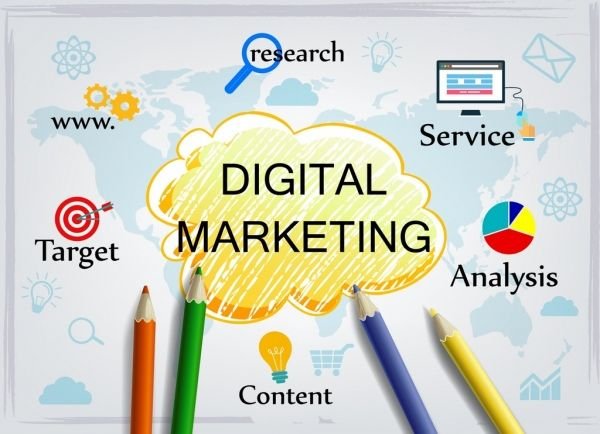In today’s fast-paced, technology-driven world, digital marketing has become an indispensable tool for businesses of all sizes. It encompasses all marketing efforts that use an electronic device or the internet, leveraging channels such as search engines, social media, email, and websites to connect with current and prospective customers. Here’s a deep dive into why digital marketing is so important for business success.
1. Broader Reach and Visibility
Global Reach
One of the most significant advantages of digital marketing is its ability to reach a global audience. Unlike traditional marketing methods that are often limited by geography, digital marketing allows businesses to connect with customers from all over the world. This expanded reach opens up new markets and opportunities for growth.
Targeted Advertising
Digital marketing platforms offer sophisticated targeting options, enabling businesses to tailor their messages to specific audiences. This ensures that marketing efforts are not wasted on uninterested parties but instead focus on those most likely to convert into customers.
2. Cost-Effective
Lower Costs
Compared to traditional marketing channels like TV, radio, and print, digital marketing is often much more affordable. Small and medium-sized businesses, in particular, can benefit from the lower costs associated with online advertising and social media marketing.
Higher ROI
Digital marketing campaigns can be easily tracked and measured, allowing businesses to see exactly where their money is going and what kind of return they are getting. This transparency helps in optimizing strategies for better performance and higher ROI.
3. Enhanced Customer Engagement
Interactive Platforms
Digital marketing provides multiple platforms for businesses to interact directly with their customers. Social media, for instance, allows for real-time engagement and feedback, fostering a sense of community and loyalty among customers.
Personalized Experiences
With the use of data analytics and customer insights, businesses can create highly personalized marketing messages that resonate with individual customers. Personalized marketing helps in building stronger relationships and driving customer loyalty.
4. Measurable Results
Analytics and Reporting
One of the standout features of digital marketing is the ability to measure every aspect of a campaign. Tools like Google Analytics and social media insights provide detailed reports on how campaigns are performing, which channels are driving the most traffic, and where improvements can be made.
Performance Tracking
Real-time tracking of digital marketing efforts allows businesses to make data-driven decisions. By analyzing key metrics such as click-through rates, conversion rates, and customer acquisition costs, businesses can continuously refine and improve their marketing strategies.
5. Increased Conversion Rates
Optimized Content
Through techniques like A/B testing and user feedback, businesses can optimize their content to ensure it resonates with their target audience. Better content leads to higher engagement rates and, ultimately, more conversions.
Seamless User Experience
Digital marketing efforts can be integrated with user-friendly website designs and streamlined purchasing processes, making it easier for customers to buy products or services. A seamless user experience significantly boosts conversion rates.
6. Staying Competitive
Keeping Up with Trends
The digital landscape is constantly evolving, and businesses that leverage digital marketing stay ahead of the curve. Staying updated with the latest trends and technologies helps businesses remain relevant and competitive in their industry.
Leveraging Influencers
Digital marketing allows businesses to collaborate with influencers and industry leaders to reach a broader audience. Influencer marketing can significantly boost brand visibility and credibility, providing a competitive edge.
7. Building Brand Authority
Content Marketing
Producing high-quality, valuable content helps businesses establish themselves as authorities in their field. Blogs, videos, infographics, and other content types provide valuable information to customers, building trust and credibility.
Social Proof
Positive reviews, testimonials, and case studies shared through digital channels serve as social proof, enhancing the business’s reputation and authority in the market.
Conclusion
In the modern business environment, digital marketing is not just an option but a necessity. Its ability to reach a global audience, cost-effectiveness, enhanced customer engagement, measurable results, increased conversion rates, competitive edge, and brand authority make it a crucial component of any successful business strategy. By embracing digital marketing, businesses can not only survive but thrive in the digital age.





